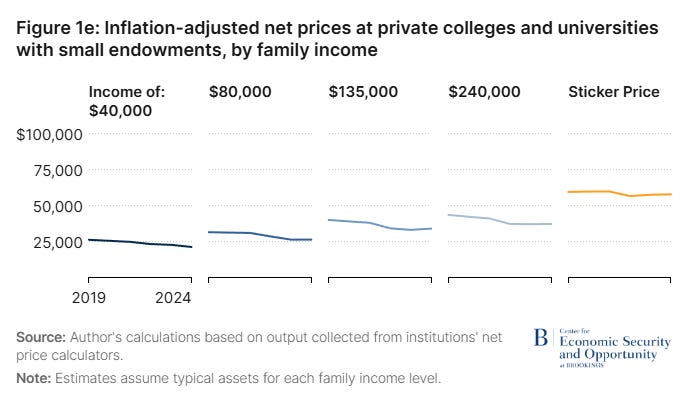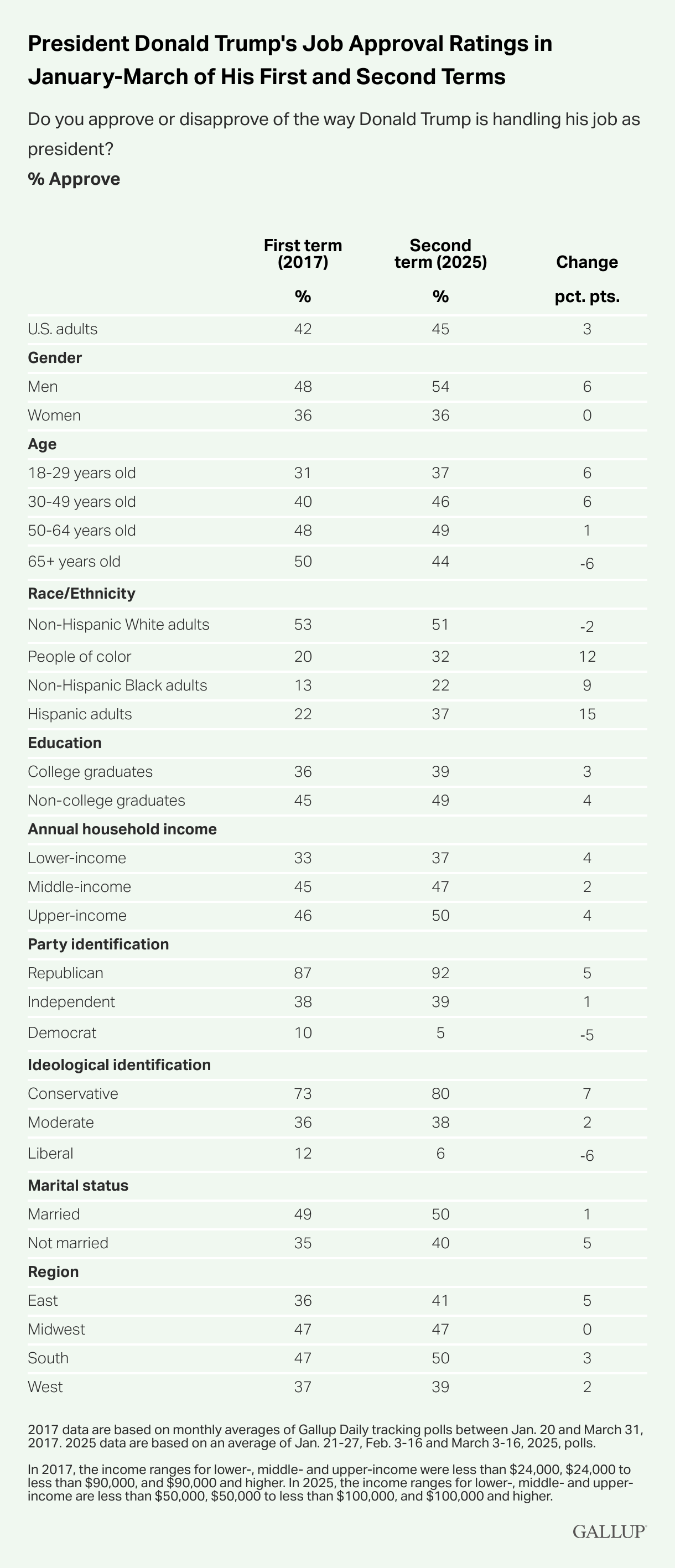As I see it…
I made some comments in a couple of my classes this week to try and provide some perspective for students. I realize that when I was in college, I likely certainly wouldn’t have listened, but I still think adults need to say things that should be said if for no other reason than to make it harder for students to say no one told them. My comments here are related to what I said.
As I see it, there are two big misconceptions that students (everyone?) have about college. The first is that all you need is the piece of paper, and you will automatically earn money and have a better life. As I noted in QTRS Oct 17, 2024, 23% of BS degrees have a negative return on investment, based on one study. Too many students are just going through the motions, figuring that all they need to do is graduate and get that diploma. I sometimes feel that our administration shares this perspective. That’s not true and likely even less true now and into the future. It is sad to see so many students go into debt while doing everything they can to get as little as possible out of college.
Related is the focus on content as the only thing that matters, and if they are taking a course they don’t perceive as something they will need for a future job, then it is a waste of time. To be fair, colleges have pushed the return on investment narrative to justify the cost, so it shouldn’t be a surprise when students take this perspective. Plus, there are a number of bs courses that have little to no value.
What is missed is the development of skills: comprehending complex ideas and being able to communicate them, being able to work with abstract symbols, attention to detail, and patience to work through challenging problems, for example. There is value in reading and writing an essay about a Shakespeare play, taking math and other quantitative courses, learning a programming language, etc., even though they don’t directly relate to what one might think they will do in a job. Doing hard stuff makes you better at doing hard stuff.
This isn't to imply that content isn't important, as, for example, I do want my doctor to understand anatomy. However, given the frequent job changes and the evolution of even the same job (for example, I now use learning management systems like Canvas, email, and smartboards, which didn’t exist when I was in college), it's important to develop skills. I should note that college or the classroom isn’t the only place to develop skills. For example, many young students, elementary and middle school, learn to play instruments. Almost all of them stop playing by the time they graduate high school. The experience wasn’t a waste of time because they developed all sorts of skills.
I pointed out that four key skills to develop are patience, persistence, curiosity, and humility. I don’t know how many times a student will say to me that they did everything right, but R isn’t working. Yeah, programming languages do what you say; if it doesn't work, you did something wrong.
One final point I made was about AI. We know students are using AI to complete work when they shouldn’t. They don't realize that if AI got them through college, a future employer only needs to invest in AI and not them.
I sympathize with students. The world has made being distracted really easy (adults, including faculty, aren’t immune) and cheating much easier. As they say, you put locks on a door to keep honest people honest. Today, cheating in multiple forms is a keystroke away. Meanwhile, the world is more competitive, and students will be competing with AI for jobs. In the past, the college degree had considerably more value. Today, due to grade inflation, lower standards, and the number of students who go to college, the degree has less value in and of itself. In fact, much of the decline of the degree is the fault of colleges and faculty themselves. Students that aren’t putting in the effort to invest in themselves, with both content and skills, are the ones most likely to have a negative return on investment.
For those of you in the real world, what do you think? Skills vs content? What skills? What content?
Let's move on to some data.
The cost of college
Brookings has a nice report, College Prices are falling for everyone (Almost) (3/10/2025), and here is one of their graphs. They have other graphs like this for different categories of colleges and universities. There was a decline in net prices for private and small-endowed schools from 2021 to 2022, with prices flattening out afterwards. The problem is that these costs are still out of reach for many families.
If your family income is around $40,000, you don’t have savings, and you don’t have over $20,000 a year to put a kid through college. The $80,000 families and possibly the other groups have the same story, as their income may reflect their cost of living. Don’t expect many of the private, small endowed colleges to survive the coming drop of students graduating high school, known as the demographic cliff. There are plenty of lower-cost alternatives in Brooking's graphs. Meanwhile, the cost is still substantial, and as I noted in my intro, students really need to get as much out of college as possible or find a different path.
The choice of the headline
Put this headline in the category of technically true but misleading: Republicans, Men Push Trump Approval Higher in Second Term (3/27/2025). Let’s look at their big table of data, which tells a slightly different (surprising?) story. Only four (overlapping) categories had a decline in approval rating from the same time in Trump’s first term: 65+ Age, non-Hispanic White, Democrat, liberal.
Why does Gallup focus on Republicans (up 5 pts) and men (up 6 points) when non-Hispanic Blacks are up 9, Hispanics up 15, and people of color up 12? I certainly wouldn’t have guessed that. To be fair, this did get the subheadline “Black, Hispanic adults more approving of Trump in second term, but still disapprove of him overall,” but this seems like it should get top billing. Note also that women are unchanged.
Which states have the highest income tax?
Here are the top 7 from USA Facts (3/28/2025). If you're interested, the list includes all states. This is a wonderful example of the data rule: Normalize properly; ask, “Per what?” DC residents pay the most, but as a percent of earnings, they are third. It’s great living in the #1 state. YYou should check out our roads; they have the best potholes around.
The costs to play sports
The article The Quiet Decline of Boys’ Sports: Why It Matters and What to Do About It is interesting, but I want to focus on the last two sets of bars in this chart because playing sports is considered a plus in college admissions. There is a big difference in sports participation depending on SES status. Note this is 2009 data, and I expect the difference has only grown due to travel baseball teams in the summer and indoor soccer in the winter, for example, that increasingly become necessary to make school teams. I consider this a key problem keeping kids from being active, as the kids that would likely initiate a pickup game in the neighborhood are off traveling.
Data center report
US DOE identifies 16 sites on federal land for “rapid data center construction,” including 1GW location. (4/4/2025) Note that 11 of the sites are locations of current national laboratories. The article has a full list if you are interested in the other five sites.
The spinning CD
Please share and like
Sharing and liking posts attracts new readers and boosts algorithm performance. I appreciate everything you do to support Briefed by Data.
Comments
Please let me know if you believe I expressed something incorrectly or misinterpreted the data. I'd rather know the truth and understand the world than be correct. I welcome comments and disagreement. We should all be forced to express our opinions and change our minds, but we should also know how to respectfully disagree and move on. Send me article ideas, feedback, or other thoughts at briefedbydata@substack.com.
Bio
I am a tenured mathematics professor at Ithaca College (PhD Math: Stochastic Processes, MS Applied Statistics, MS Math, BS Math, BS Exercise Science), and I consider myself an accidental academic (opinions are my own). I'm a gardener, drummer, rower, runner, inline skater, 46er, and R user. I’ve written the textbooks “R for College Mathematics and Statistics” and “Applied Calculus with R.” I welcome any collaborations. I welcome any collaborations.








